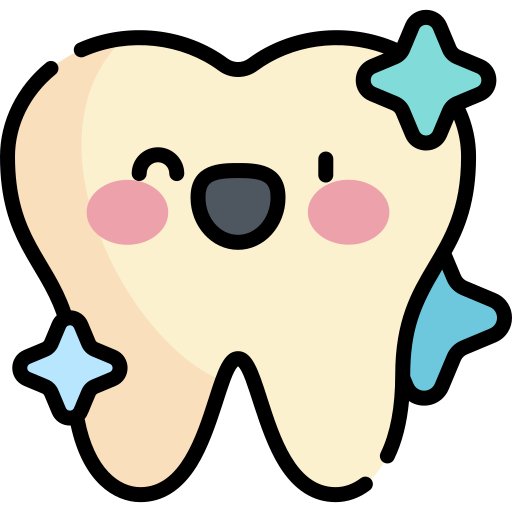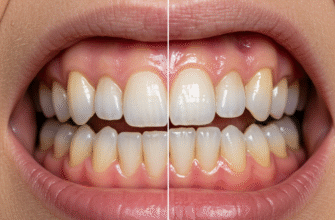We often reach for a bottle of water thinking we’re making a universally healthy choice. It’s hydrating, convenient, and frequently marketed as pure and refreshing. This perception often extends to our dental health too, with many believing that any bottled water is inherently good for their teeth, a sort of dental elixir in a convenient package. But is this really the case? Let’s dive deeper into this common assumption and uncover why the idea that all bottled water is a dental superhero might just be a myth that needs a closer look.
The Missing Mineral: Where’s the Fluoride?
One of the primary reasons this myth persists is a fundamental misunderstanding of what makes water beneficial for teeth beyond simple hydration. The star player in water’s dental benefits is often fluoride. This naturally occurring mineral is a true champion for our enamel, which is the hard, outer protective layer of our teeth. Fluoride works its magic in a couple of key ways: it helps to remineralize enamel that has been slightly eroded by acids produced by bacteria feasting on sugars in our food, and it makes teeth more resistant to future acid attacks, effectively helping to prevent cavities from forming or progressing.
For decades, many public water systems across the globe have practiced community water fluoridation. This involves adjusting the fluoride concentration in the drinking water supply to an optimal level specifically for preventing tooth decay. This public health measure has been widely recognized and lauded by numerous health organizations for its significant positive impact on dental health across entire populations. So, when you drink tap water in many fluoridated areas, you’re passively getting a beneficial dose of this tooth-strengthening mineral with every glass.
Now, let’s pivot to the world of bottled water. The perhaps surprising truth for many is that most bottled waters contain little to no fluoride, or at least not at levels considered optimal for providing significant dental health benefits. Why this discrepancy? There are several contributing factors:
- Source Water Variability: Some bottled waters originate from natural springs or underground wells that inherently have very low natural fluoride levels. While some spring waters might contain some fluoride, the amount is often inconsistent from source to source and rarely reaches the optimized levels found in treated municipal water.
- Intensive Purification Processes: Many popular brands of bottled water undergo extensive purification processes. Techniques like reverse osmosis, distillation, or deionization are incredibly effective at removing potential impurities and contaminants. However, these processes are non-selective and also strip away most of the dissolved minerals, including beneficial ones like fluoride. While this results in ‘pure’ H2O, it’s not necessarily ‘dentally optimal’ water from a fluoride perspective.
- Lack of Fortification or Regulation: Unlike community tap water programs, which are often guided by public health recommendations, bottled water manufacturers are generally not required to add fluoride to their products. While a few niche brands might offer a specifically fluoridated version of bottled water, these are often harder to find and are not the standard offering you’d typically grab from the supermarket shelf. You’d have to actively seek them out, and they represent a small fraction of the market.
Therefore, if your hydration habits lean exclusively towards bottled water that has been demineralized through purification or sourced from a naturally low-fluoride spring, your teeth might be missing out on the consistent, protective presence of fluoride that they could otherwise receive from fluoridated tap water. This is a significant consideration, especially for children whose teeth are still developing and are particularly vulnerable to decay.
The Hidden Acidity: Not Always Neutral
Beyond the crucial fluoride issue, there’s another important factor to consider when evaluating bottled water’s impact on dental health: its pH level. The pH scale is a measure of how acidic or alkaline (basic) a substance is. The scale ranges from 0 (highly acidic) to 14 (highly alkaline), with a pH of 7 being neutral. Our mouths naturally strive to maintain a pH around neutral. However, when we consume acidic foods and beverages – think citrus fruits, sodas, or even some sports drinks – the pH in our mouth drops. If it falls below a critical threshold, which is around 5.5 for tooth enamel, the enamel begins to demineralize, or essentially dissolve. This process is known as dental erosion. Over time, repeated and prolonged acid exposure can lead to significant enamel loss, resulting in tooth sensitivity, an increased risk of developing cavities (as the protective layer is weakened), and a less aesthetically pleasing, often duller, appearance of the teeth.
You might logically assume that all water, being just H2O, is perfectly neutral with a pH of 7, right? Unfortunately, that’s not always the reality with bottled water. Some bottled waters, especially those marketed as ‘purified’ which have had most or all minerals removed, can actually be slightly acidic. This can occur because the purification processes that remove contaminants also remove the naturally occurring alkaline minerals (like calcium and magnesium) that would otherwise buffer the water’s pH and keep it closer to neutral or slightly alkaline. Even some natural spring waters can be inherently slightly acidic depending on the geology of their source and their specific mineral composition. Furthermore, sometimes manufacturers add certain minerals back into purified water for taste enhancement after the purification process, and these added minerals can occasionally lower the pH, pushing it into the acidic range.
While a single bottle of slightly acidic water is highly unlikely to cause any immediate or noticeable harm to your teeth, the concern arises with consistent, long-term consumption. If acidic bottled water is your primary beverage and you’re sipping it frequently throughout the day, this could contribute to a chronic low-pH environment in your mouth, potentially accelerating dental erosion. It’s akin to subjecting your enamel to a constant, albeit low-level, acid attack. When you combine this potential for acidity with the common lack of protective fluoride, the overall picture for bottled water’s supposed dental benefits becomes even less clear-cut and, in some cases, potentially detrimental.
It’s important to understand that many popular brands of bottled water do not contain optimal levels of fluoride, a crucial mineral for strengthening tooth enamel and preventing cavities. Furthermore, some types of bottled water, particularly those that undergo extensive purification processes like reverse osmosis or distillation, can be slightly acidic. Consistent consumption of acidic beverages can contribute to the erosion of tooth enamel over time, potentially leading to increased sensitivity and a higher risk of tooth decay.
Reading Between the Lines (and Labels)
So, if you’re a dedicated bottled water drinker, or if it’s your main source of hydration for various reasons, what can you do to be more tooth-savvy? It largely comes down to becoming a more informed and observant consumer. While navigating the world of bottled water labels can be challenging, here are a few practical things to keep in mind:
- Attempt to Check the Label for Information: This is easier said than done, as detailed water quality reports are not always readily available on the bottle itself. Some bottled water labels might provide information on typical fluoride content or even pH, but many don’t, or the information is minimal. If fluoride is present and listed, you can see the concentration (often in parts per million, ppm). If it explicitly states “fluoride-free” or lists 0 ppm fluoride, then you know it offers no fluoride benefit. Information on pH is even rarer to find directly on labels, sometimes requiring a visit to the company’s website, if they provide it at all.
- Understand the Terminology Used:
- Purified Water: This term often indicates that the water has been processed using methods like reverse osmosis, distillation, or deionization. As mentioned, these processes typically remove the vast majority of minerals, including fluoride, and can result in water that is slightly acidic.
- Distilled Water: This is a type of purified water where virtually all minerals and impurities are removed through a process of boiling and condensation. It will definitely lack fluoride and is often acidic.
- Spring Water: This water is sourced from an underground geological formation from which water flows naturally to the surface. Its mineral content, including any naturally occurring fluoride, will vary greatly depending on the specific source. It’s not a guarantee of beneficial fluoride levels.
- Mineral Water: This type of water is characterized by its content of naturally occurring dissolved mineral salts. The specific mineral profile, including fluoride, varies significantly by brand and source. Some mineral waters might contain beneficial minerals, but again, fluoride levels are not consistently optimal for dental protection.
- Artesian Water: Sourced from a confined aquifer that has been tapped. Like spring water, its mineral content is variable.
- Consider the Source (If Disclosed): If the brand provides clear information about its water source and the specific purification processes employed, this might offer some clues about its likely mineral content and pH. However, this level of detailed information is often not prominently displayed and may require deeper research, such as contacting the company directly.
The key takeaway here is not to make the blanket assumption that “bottled” automatically equates to “dentally superior” or even “dentally neutral.” Awareness is the first step to making better choices.
Revisiting an Old Friend: Tap Water’s Dental Edge
This entire discussion inevitably brings us back to considering good old tap water. In many communities, particularly those that have implemented water fluoridation programs, tap water often holds a distinct and scientifically supported advantage when it comes to promoting dental health. The carefully monitored and adjusted levels of fluoride in treated municipal water provide a consistent, low-dose exposure that helps protect teeth from decay throughout the day, every time you take a sip, brush your teeth with it, or use it in cooking.
Of course, it’s acknowledged that concerns about general tap water quality, taste, or the presence of other substances exist in some regions, and individuals may have valid personal preferences or specific reasons for choosing bottled water over tap. However, when specifically considering the direct impact on tooth enamel integrity and the prevention of cavities, optimally fluoridated tap water frequently emerges as the superior choice. This is primarily due to its reliable fluoride content and its typically more neutral pH compared to some heavily demineralized or acidic bottled waters. For many people, it represents an accessible, incredibly cost-effective, and passive way to support their dental wellness and that of their families.
It’s important to reiterate that this discussion is narrowly focused on the dental health aspects related to fluoride and pH. If you have broader concerns about the safety or quality of your local tap water beyond these factors, consulting your local water authority or public health department for detailed consumer confidence reports and specific information is always a prudent course of action.
Making Choices That Smile Back
The overarching goal here isn’t to demonize bottled water entirely or suggest a complete boycott. Bottled water undoubtedly plays an important and convenient role in hydration, especially in emergency situations, during travel, where tap water isn’t potable, or for individuals who simply prefer the taste or convenience. However, understanding its potential limitations and even drawbacks concerning specific aspects of dental health is absolutely crucial for making well-rounded decisions.
If bottled water constitutes your primary, or even sole, source of daily hydration, particularly if you favor types known to be low in fluoride and potentially on the acidic side of the pH scale, it’s certainly worth being more mindful. This doesn’t necessarily mean you have to drastically overhaul your habits overnight, but you might consider a few adjustments or additional measures:
- Do not rely on it as your sole or primary source of fluoride. This is especially critical. Ensure you are consistently using a fluoride-containing toothpaste, as recommended by dental professionals. For children, this is even more paramount.
- Be mindful of your overall dietary acidity. If your diet already includes a significant amount of acidic foods and drinks (like sodas, citrus juices, certain fruits, vinegar-based dressings), consistently adding potentially acidic bottled water to the mix might further challenge your enamel’s integrity.
- Discuss your water choices and overall fluoride exposure with your dentist or dental hygienist. They are best positioned to assess your individual cavity risk profile, examine your teeth for any early signs of erosion, and provide personalized guidance on ensuring adequate fluoride exposure based on your specific circumstances, diet, age, and the fluoride status of your local water supply.
Being acutely aware of these nuances allows you to make proactive choices that support both your essential hydration needs and your long-term dental health, rather than inadvertently undermining one while pursuing the other.
The Verdict: Myth Busted
So, let’s return to our initial question: is all bottled water inherently good for your teeth? The evidence strongly suggests that this common belief is, for the most part, a myth. While hydration itself is undeniably essential for overall health, which naturally includes oral health (as saliva, which is mostly water, plays a key role in cleansing the mouth and neutralizing acids), not all bottled waters actively contribute to strengthening teeth or preventing cavities in the same way that optimally fluoridated tap water can. The frequent and significant lack of adequate fluoride, coupled with the potential for acidity in some popular brands and types of bottled water, means that relying exclusively on it for hydration might, in fact, leave your teeth more vulnerable to decay and erosion over time than you realize.
Ultimately, knowledge empowers us to make better decisions for our well-being. By understanding the critical roles that fluoride and a neutral pH play in maintaining dental health, and by becoming a more discerning and inquisitive consumer when it comes to your water choices, you can make better-informed decisions to keep your smile healthy, strong, and bright for years to come. It’s not about a simplistic “good versus bad” dichotomy, but rather about fostering awareness and making conscious choices that align with your overall health goals, including the often-overlooked needs of your teeth.








